★★★
“/snorts in Lola”
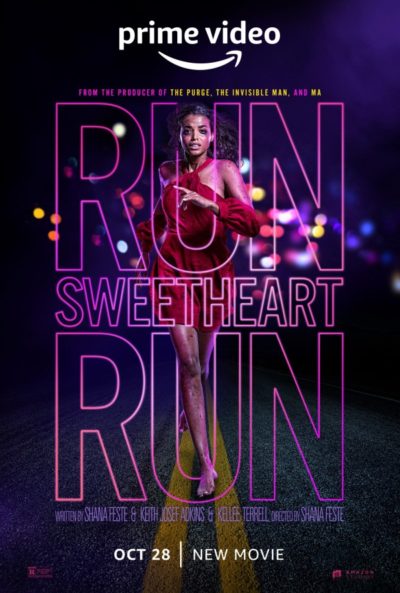 If I were Ella Balinska, I’d be having a word with my agent. After seeing her major Hollywood career begin with the embarrassing failure of the Charlie’s Angels reboot, she then followed up with an even more dismal flop, the attempted reboot by Netflix of Resident Evil. Now there’s this, which eventually seeped out on Amazon Prime, in a re-cut form, almost three years after premiering at Sundance. This either doubles down on the loony feminist claptrap of Angels, or is a deadpan parody of that kind of nonsense. For the sake of my sanity, and for humanity in general I’m going to presume it’s the latter, and the grade above reflects this. If it was intended as serious social commentary, slice the grade in half, and God help us all.
If I were Ella Balinska, I’d be having a word with my agent. After seeing her major Hollywood career begin with the embarrassing failure of the Charlie’s Angels reboot, she then followed up with an even more dismal flop, the attempted reboot by Netflix of Resident Evil. Now there’s this, which eventually seeped out on Amazon Prime, in a re-cut form, almost three years after premiering at Sundance. This either doubles down on the loony feminist claptrap of Angels, or is a deadpan parody of that kind of nonsense. For the sake of my sanity, and for humanity in general I’m going to presume it’s the latter, and the grade above reflects this. If it was intended as serious social commentary, slice the grade in half, and God help us all.
Cherie (Balinska) is a wannabe lawyer, toiling away in a Los Angeles legal firm, and suffering all the slings and arrows the patriarchy can hurl at a single black mother. In particular, her boss (Gregg) asks her to stand in for him and take a client, Ethan (Asbæk). out to dinner. He’s handsome, charming… and a demonic entity of some kind, who then proceeds to hunt Cherie through the LA night, after telling her, she’ll be free if she can last till dawn. Turns out she’s far from his first victim, and Cherie’s only hope of help is a mysterious woman called the First Lady (an effortlessly movie-stealing Aghdashloo), who knows a thing or two…
It’s a perfectly fine premise, and as well as Aghdashloo, Asbæk also seems to be in on the joke, over-acting enthusiastically and to good effect. There are moments when this is supremely self-aware, such as when Ethan follows Cassie into his house, then turns and gestures to stop the camera from following. Or the 72-point font exhortations to “RUN!” splattered on the screen at appropriate moments. Yet it feels as if Feste doesn’t understand the genre in which she’s operating. Horror is about confronting fears head-on (albeit in a safe environment), not avoiding them. By pointing the camera away, she’s missing the point. For instance, when Ethan reveals his true form, all we see is Cassie’s reaction, and Balinaka’s pulling of faces is nowhere near a good enough performance to sell it.
Despite what I said above, unfortunately, it does appear the film intends its feminist message to be taken seriously, and at times this drowns the entertaining elements in cringe. Peak levels are reached after Cherie is rescued from an obnoxious alpha male at a party by three sisters, who unironically spout nonsense like, “We desperately need the female brain.” The whole movie is spattered with badly-written dialogue and action along similar lines, rather than letting its meaning flow naturally from events as they happen. Such moments derail what was a promising B-movie. Indeed, if it had been more Ethan vs. First Lady, with Cassie reduced to the annoying footnote she deserves to be, it could potentially have been a classic.
Dir: Shana Feste
Star: Ella Balinska, Pilou Asbæk, Clark Gregg, Shohreh Aghdashloo





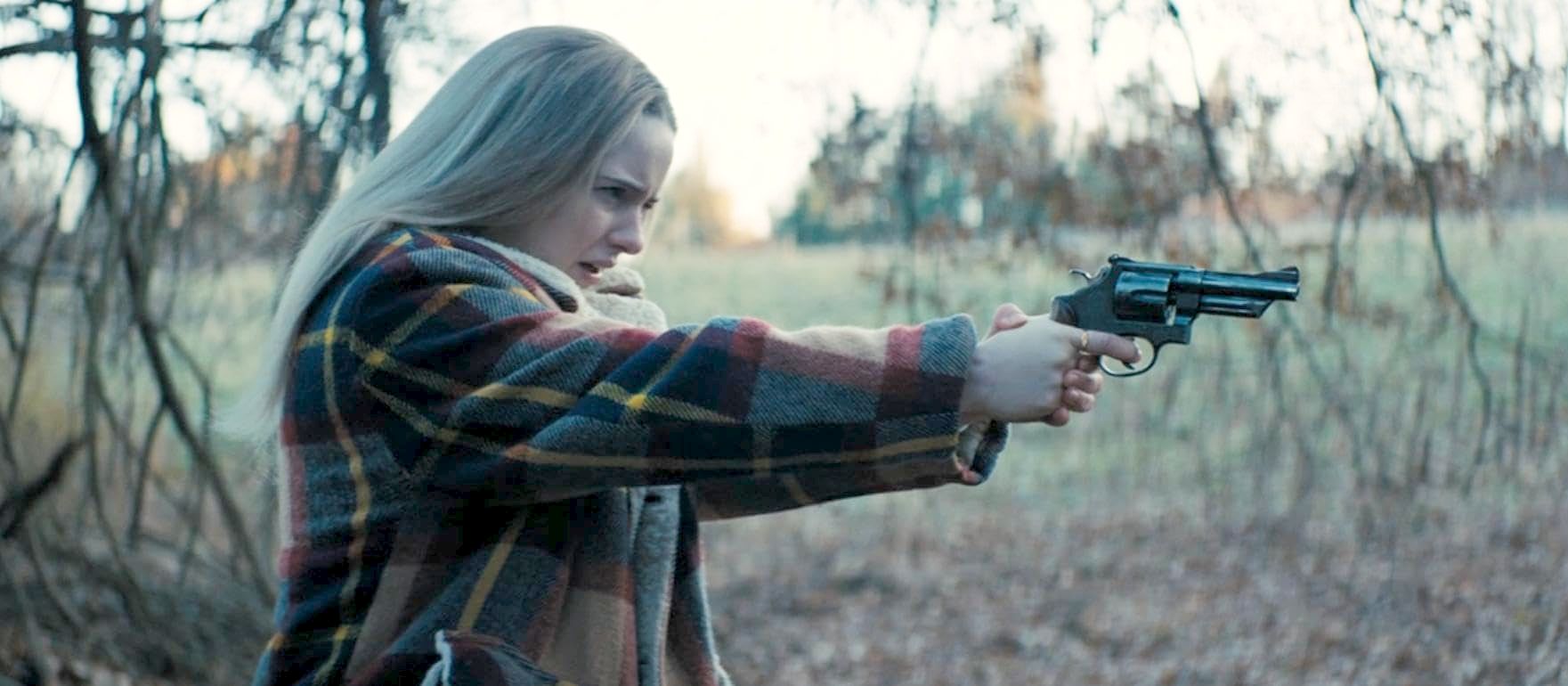 ★★★★
★★★★ Hearing that James Gunn, new head of the DC movie department at Warners, just recently announced David Corenswet and Rachel Brosnahan as the new actors to play Superman and Lois Lane in the next “Superman”-movie, I felt the need to find out more about these new actors. For Brosnahan I chose the movie I’m Your Woman, an Amazon Prime production from 2020. For one thing, she played the main role, and secondly a two-hour movie is much quicker to watch than a series like The Marvellous Mrs. Maisel. Sure, for that series she got two Golden Globes, one Emmy and two Screen Actors Guild Awards – but my time is a bit limited. Also, I prefer gangster movies over a dramedy show.
Hearing that James Gunn, new head of the DC movie department at Warners, just recently announced David Corenswet and Rachel Brosnahan as the new actors to play Superman and Lois Lane in the next “Superman”-movie, I felt the need to find out more about these new actors. For Brosnahan I chose the movie I’m Your Woman, an Amazon Prime production from 2020. For one thing, she played the main role, and secondly a two-hour movie is much quicker to watch than a series like The Marvellous Mrs. Maisel. Sure, for that series she got two Golden Globes, one Emmy and two Screen Actors Guild Awards – but my time is a bit limited. Also, I prefer gangster movies over a dramedy show. I think this makes it quite an unusual movie as – in contrast to many other movies – we are not immediately brought up to speed with an info-dump, so that we tie ourselves emotionally to Jean. As a result, the fear and tension she experiences are really palpable to us, too. We don’t know who Cal is and why he is helping her, or why people are after Jean. In my opinion, the movie is particularly successful in showing a female perspective, as part of something that would otherwise potentially have been just an ordinary gangster story. In the beginning, Jean does whatever she is told, while at the same time also trying her best to be a good mother to the little baby, even if her knowledge in this respect is also just rudimentary.
I think this makes it quite an unusual movie as – in contrast to many other movies – we are not immediately brought up to speed with an info-dump, so that we tie ourselves emotionally to Jean. As a result, the fear and tension she experiences are really palpable to us, too. We don’t know who Cal is and why he is helping her, or why people are after Jean. In my opinion, the movie is particularly successful in showing a female perspective, as part of something that would otherwise potentially have been just an ordinary gangster story. In the beginning, Jean does whatever she is told, while at the same time also trying her best to be a good mother to the little baby, even if her knowledge in this respect is also just rudimentary. This is definitely an interesting idea, and potentially the most meta action heroine film I’ve seen. Cha Yeon-hee (Ahn) has wanted to be a movie heroine ever since she was a child, though it’s an ambition which has always eluded her – in part because of her refusal to work her way up in the industry. She eventually and grudgingly accepts a stunt double position in a historical swordplay film, and shows up on the set for her first day. However, due to circumstances involving a magical clapperboard (hence the title) and an inconvenient portal, she finds herself transported to a parallel dimension. It’s kinda like modern Korea in clothes and speech, but run by warlords and their sword-carrying minions.
This is definitely an interesting idea, and potentially the most meta action heroine film I’ve seen. Cha Yeon-hee (Ahn) has wanted to be a movie heroine ever since she was a child, though it’s an ambition which has always eluded her – in part because of her refusal to work her way up in the industry. She eventually and grudgingly accepts a stunt double position in a historical swordplay film, and shows up on the set for her first day. However, due to circumstances involving a magical clapperboard (hence the title) and an inconvenient portal, she finds herself transported to a parallel dimension. It’s kinda like modern Korea in clothes and speech, but run by warlords and their sword-carrying minions.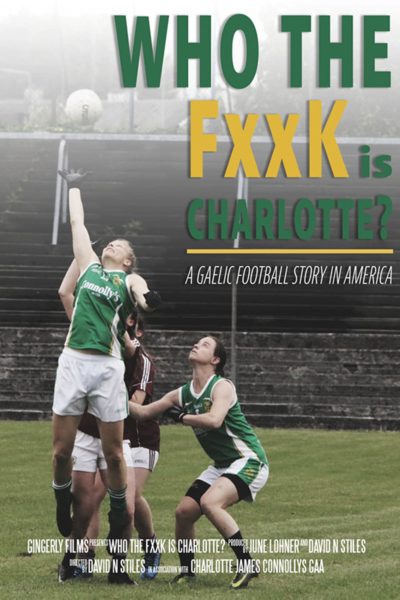 The Charlotte club was formed in 2000, and based on what we see here, is as much a social organization as a sports club. There does appear to be quite a lot of consumption of adult beverages. But there’s no doubt, they take the sport seriously, and recruit from all round the area, both Irish and American players. On North America, teams can bring in experienced players from Ireland, known as “sanctions”, to help grow the sport. But some clubs do that to excess: Charlotte refuse to go that route, putting their team at a potential disadvantage compared to Boston, or their arch-rivals from San Francisco, the Fog City Harps. The film follows Charlotte as they develop their team, and take part in the 2016 and 2017 senior women’s tournament, for the best sides in North America.
The Charlotte club was formed in 2000, and based on what we see here, is as much a social organization as a sports club. There does appear to be quite a lot of consumption of adult beverages. But there’s no doubt, they take the sport seriously, and recruit from all round the area, both Irish and American players. On North America, teams can bring in experienced players from Ireland, known as “sanctions”, to help grow the sport. But some clubs do that to excess: Charlotte refuse to go that route, putting their team at a potential disadvantage compared to Boston, or their arch-rivals from San Francisco, the Fog City Harps. The film follows Charlotte as they develop their team, and take part in the 2016 and 2017 senior women’s tournament, for the best sides in North America. 
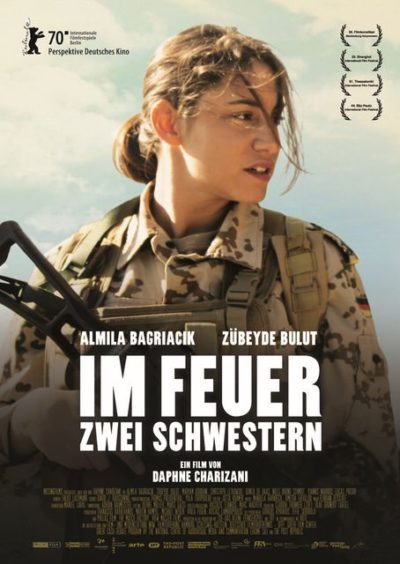 There seem to have been quite a few movies out of Europe over the past couple of years, about the female soldiers fighting in Kurdistan for independence with the PKK and related groups. French films
There seem to have been quite a few movies out of Europe over the past couple of years, about the female soldiers fighting in Kurdistan for independence with the PKK and related groups. French films 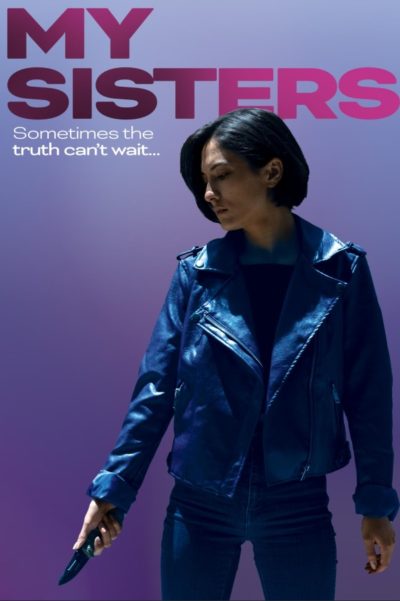 This felt oddly familiar, like I had watched it before. One scene in particular – a maintenance man comes to replace a light-bulb, only to become an apparent threat – had me
This felt oddly familiar, like I had watched it before. One scene in particular – a maintenance man comes to replace a light-bulb, only to become an apparent threat – had me 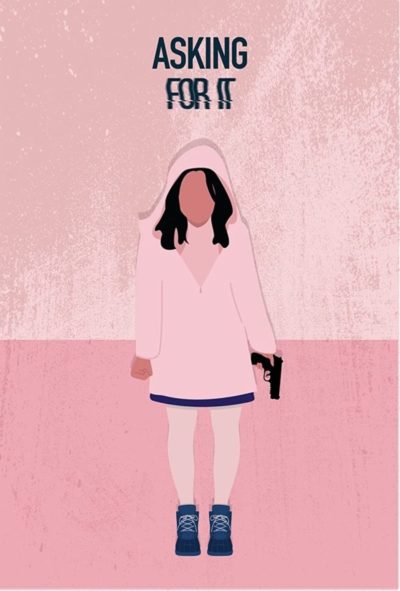 Not to be confused with the 2022 rape-revenge film of the same name (which I’ll get round to reviewing down the pipe), this is somewhat lighter in tone, though there’s a case to be made that this clashes terribly with the subject matter. Jenny (Hsu) is a journalist, working under Cheryl (Garofalo),and her work has brought her to the attention of an online stalker, who sends her increasingly disturbed and disturbing emails. When the harassment begins to move from the cyberworld into the real one, and the authorities fail even to reach the level of disinterest, Jenny teams up with room-mate Lisa (Morales), to hunt down the perpetrator and bring him to justice themselves.
Not to be confused with the 2022 rape-revenge film of the same name (which I’ll get round to reviewing down the pipe), this is somewhat lighter in tone, though there’s a case to be made that this clashes terribly with the subject matter. Jenny (Hsu) is a journalist, working under Cheryl (Garofalo),and her work has brought her to the attention of an online stalker, who sends her increasingly disturbed and disturbing emails. When the harassment begins to move from the cyberworld into the real one, and the authorities fail even to reach the level of disinterest, Jenny teams up with room-mate Lisa (Morales), to hunt down the perpetrator and bring him to justice themselves. Giving your film a title like this is basically asking for trouble. It gives snarky critics an extremely easy weapon to wield against the movie. That’s especially so when it’s a low-budget effort, made with considerably more heart than skill. It’s not without merit, especially in the photography. It is crisp and does a good job of capturing some beautiful Montana scenery – there’s a reason the state is nicknamed Big Sky Country – and the rodeo action. The problems are in a script which never met a cliché it didn’t like, and performances that do little or nothing to elevate the material.
Giving your film a title like this is basically asking for trouble. It gives snarky critics an extremely easy weapon to wield against the movie. That’s especially so when it’s a low-budget effort, made with considerably more heart than skill. It’s not without merit, especially in the photography. It is crisp and does a good job of capturing some beautiful Montana scenery – there’s a reason the state is nicknamed Big Sky Country – and the rodeo action. The problems are in a script which never met a cliché it didn’t like, and performances that do little or nothing to elevate the material.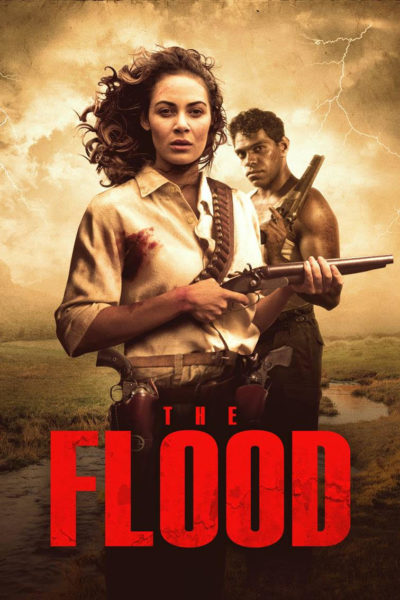 The first eighty or so minutes of this are really good: powerful, committed and extremely angry film-making. And justifiably so, I would say. Unfortunately, the film runs for a hundred and seventeen minutes, and definitely goes off the rails towards the end. The gritty realism which was perhaps the movie’s strongest suit is replaced by odd fantasy sequences, such as the fugitive couple suddenly dressed, in the middle of a forest, as if they were attending a Victorian embassy ball. I’m not certain what the point of these elements, or the anachronistic pop songs were. I am certain that they didn’t enhance my appreciation of the film in any way, and that’s a shame, considering how assured it had been in the early going.
The first eighty or so minutes of this are really good: powerful, committed and extremely angry film-making. And justifiably so, I would say. Unfortunately, the film runs for a hundred and seventeen minutes, and definitely goes off the rails towards the end. The gritty realism which was perhaps the movie’s strongest suit is replaced by odd fantasy sequences, such as the fugitive couple suddenly dressed, in the middle of a forest, as if they were attending a Victorian embassy ball. I’m not certain what the point of these elements, or the anachronistic pop songs were. I am certain that they didn’t enhance my appreciation of the film in any way, and that’s a shame, considering how assured it had been in the early going.